So one thing I love about Barbara O’Connor’s writing is that she creates characters with personality and depth, but doesn’t lean on the quirkiness crutch. She often focuses on the kids and adults living on the edge, struggling with poverty, isolation, or family. But the struggles never become a one-note chord, instead deepening the humanity of the writing. The other thing I love about her books is that she doesn’t take the easy out with her endings. The girl doesn’t win the contest. The boy does lose his grandmother. There’s no magic that makes everything perfect, but there is satisfaction in the realism.
Her last book, Greetings from Nowhere, is collecting honors across the United States — as well it should. It’s a brilliant book where the lives of four very different people intersect and change when they all stay at the same motel in the Smokey Mountains. Her newest book comes out in September. It’s set in the small southern town of Fayette, South Carolina, where Popeye finds everything boring. From the jacket flap:
But things start to look up when the Jewells’ Holiday Rambler makes a wrong turn and gets stuck in the mud, trapping Elvis and his five rowdy siblings in Fayette for who knows how long. Popeye has never met anyone like Elvis Jewell. He’s so good at swearing he makes Uncle Dooley look like a harp-strumming angel, and he says “So what?” like he really means it. Then an adventure comes floating down the creek — a small adventure, just the right size for a kid like Popeye — and it all seems too good to be true.
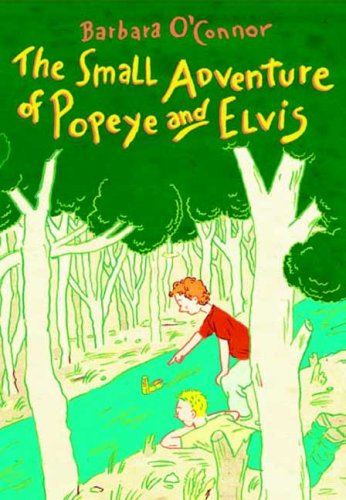 How does your newest book, The Small Adventure of Popeye and Elvis, reflect your own life experiences?
How does your newest book, The Small Adventure of Popeye and Elvis, reflect your own life experiences?There are several key story elements that mesh with my own life. The story revolves around two boys playing in a creek. When I was a child, I loved playing in a creek near my home. I would spend hours catching crawfish and minnows and building dams.
Another important part of the story is a motor home (it becomes stuck in the dirt road in front of the main character’s house). There is a funky RV/trailer park near my home that I walk through often because it is on the ocean and has an amazing view. I love looking at all the trailers and seeing the hubbub of activity there in the summers. I love imagining what it would be like to live in one, particularly a family with a lot of rowdy kids — so I took that imagining and put it in a book.
But the best “life experience” that is reflected in the book is a little boat made out of a Yoo-hoo chocolate drink carton. When the story was first simmering in my head, I only had a very hazy idea of two boys playing in a creek. At the time, I envisioned that they were making little boats and sending them down the creek. Then I realized it would be much more interesting if they found boats floating down the creek. But I envisioned the boats as being made out of bark or something. Then I read a blog post by fellow writer Tamra Wight (The Three Grumpies) in which she posted a picture of a fabulous little boat that her son had made out of a Yoo-hoo carton. Eureka! That was it! So I emailed her to ask her if I could steal that great idea and she (and her son) said yes. (He even taught me how to make the boats — starting out with “First I put the straw in and drank it.”)
Why did you need to write this particular book?
I do a lot of school visits. During the last couple of years in particular, I’ve been much more aware of real kids reading real books. I guess that sounds kind of crazy — but I think sometimes when we sit at home in our adult bubble worlds, we forget about the fact that our books are (hopefully) read by real-life children. I also think it’s easy to lose your focus and think more about how adults are going to respond to your work: reviewers, librarians, teachers, parents, etc. (which is understandable, since those are the folks who are the first “entrance” into the world for us — the ones who review the books, buy the books and promote them to children).
So I’ve been feeling more and more like I want to write books with lots of kid appeal, which I think The Small Adventure of Popeye and Elvis has. I also wanted to write a book that would appeal to boys as well as girls.
When did you start writing?
I started dabbling in writing for children almost thirty years ago. (Yikes!) I was living in Los Angeles and took a class in writing for children at UCLA. Then I attended the national SCBWI conference out there — as a total newbie. I really got the bug and pursued it more seriously, starting with a magazine story, then a terrible novel, then a slightly better but still rejected novel, then biographies (which is where I got my start in children’s publishing).
Who inspires you personally or professionally?
I won the publishing lottery when I sold my first novel (and now, all of my novels) to Frances Foster, my editor at Farrar, Straus & Giroux. She is a brilliant editor and inspires me on so many levels. She totally gets and respects the creative process. She’s able to help me see my own vision of my work and knows how to ask questions that make me think about my work on deeper levels. She doesn’t let me get away with “surface” stuff — and she encourages me to write freely and not censor myself. In his book Minders of Make-Believe, Leonard Marcus describes Frances as “quietly effective.” I think that’s a perfect description.
My agent, Barbara Markowitz, also inspires me by having total, 100% faith in me. We all need someone who believes in us — and Barbara is that person for me. I adore her for that (and it saves me so much money on therapy).
And last, I am utterly, totally inspired by Cynthia Rylant. I credit her book Missing May with lighting the proverbial light bulb for me with regard to finding my own voice and writing style. I sent her a copy of Me and Rupert Goody years ago, along with a letter telling her how much she inspired me. She wrote me the loveliest note back, which I cherish.
Which part of being an author do you enjoy the most?
I love being able to work at home. I love crawling into the heads of made-up people. I love finding just the right words and putting them together so that they sound lovely or funny or harsh or sad or whatever emotion I’m trying to create. And I absolutely adore children.
How do you balance the demands of the writing life with the demands for online presence and book promotion?
Oh, boy, that’s a good one. Sometimes I wonder if I do balance those things. I do find that the weight shifts, which I guess is natural. I confess to the fact that I don’t really enjoy the promotional side of the business and am not particularly good at it. I confess to sometimes being frustrated by having to do all the other things involved with the business instead of writing — and then having no time to write. But I also know that I have to accept that promotion is a necessary part of a successful writing career.
I still believe, however, that for me, the best thing I can do for my career is to put most of my time into writing my next book. So I do limit how much time I devote to some of the more time-consuming promotion that takes me away from my writing.
The good news is that online promoting is right up my alley. I call it “pajama marketing.” I can stay home in my jammies and get news about my book out into the world! I’ve made so many great connections through online venues, particularly blogging. I can also fit it in with my writing schedule. The downside, as most of us know, is that that big online world can be a huge time suck — one link leads to another, leads to another, leads to another. So I have to muster up more discipline in that regard and set aside focused, uninterrupted, internet-off, writing time.
What’s next for you?
I have another middle grade novel coming out with FSG in the spring of 2010, called The Short, Sad Life of Tooley Graham. I’m excited about this one because I think it, like The Small Adventure of Popeye and Elvis, has lots of kid appeal and boy appeal. And it was really fun to write.
As a writer, which tools would you say you rely on most to define your own writing style?
Character, for sure. For me, nothing happens until the characters are clearly defined in my head. Often, characters come before any storyline is in place at all. I love characters who are unique (without relying on the stereotypical “quirky”), while still being realistic and human. I like for my characters to behave the way we all do — i.e., making mistakes once in a while. I like to give them lots of heart, showing a range of human emotions, such as sadness, jealousy, joy, anger, etc. I also work hard to make them each distinct from one another. That was my biggest challenge when writing the multiple-viewpoint story of Greetings from Nowhere — giving each of those four characters a unique personality and identity.
Setting comes next. I grew up in the South, so that is not only the setting I know best, but it’s the setting I love the most. Setting also helps define character. I rely heavily on my ear for Southern dialogue and dialect and try to toss in lots of Southern details, like magnolias and boiled peanuts and sweet tea (without overdoing it, hopefully). As a child, I spent a lot of time in the Smoky Mountains, which is my heart’s home, for sure. I set my second novel there (Me and Rupert Goody). Then I went back there in Greetings from Nowhere, a book in which the setting (the Sleepy Time Motel) becomes almost like a secondary character. The mountains were such an important part of that story... I can’t imagine it being set anywhere else.
The last tool I’d say that I enjoy drawing on to define my work is that I like to leave the bow that wraps the package very loosely tied. In other words, I like to end my stories realistically (i.e., what probably would have happened instead of what the reader might want to happen) and sometimes a bit open-ended (i.e., the reader can bring his or her own imagination to the ending and think about where the story goes from there). I think this comes mainly from strong identity with my characters, so that I let them take me where their story is heading rather than me, the writer, manipulating the story, if that makes sense. (Sounds a little cosmic, I know...)
I often have students in schools ask me, “What happened to so-and-so after the story ended?” I love that question — because then I can come back to them and say, “What do YOU think happened to so-and-so after the story ended?” The never-ending story. Ha!
Thanks to Barbara for stopping by MotherReader. The rest of the Summer Blog Blast Tour continues with...

















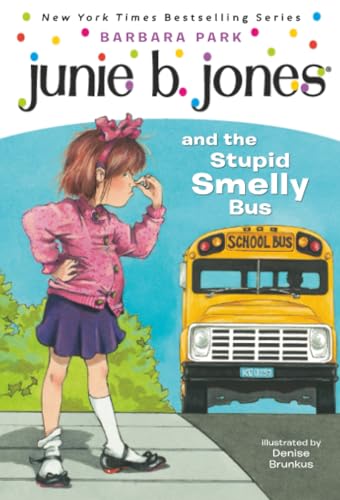



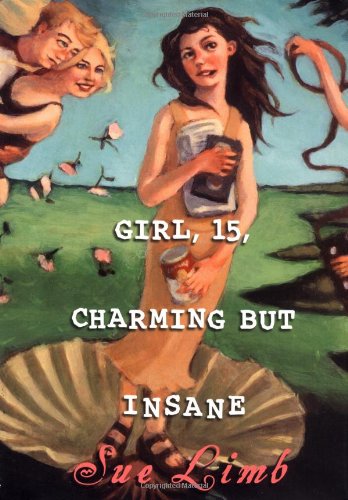
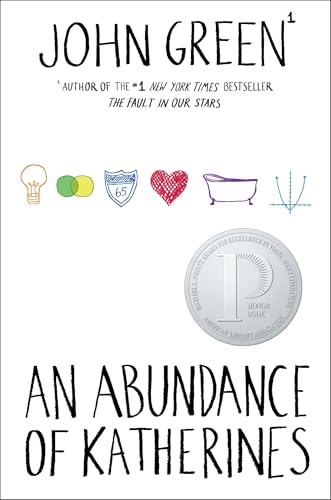
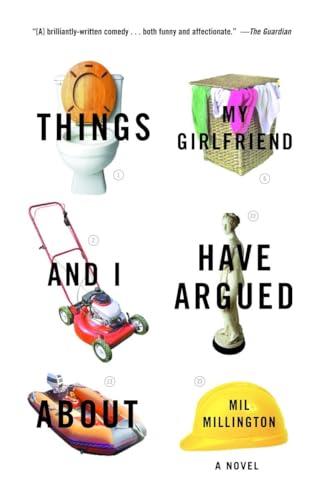
12 comments:
Lovely interview with great questions! Learned a lot from Barbara's thoughtful answers. Really looking forward to Popeye and Elvis. Thanks!!
I ADORE Barbara's book and can't wait for this one! And boy, oh boy, we get two of her books within months of each other, too! Thanks for the interview!
This interview was soooo satisfying, just like one of Barbara's books. I think she truly does deliver stories with kid-appeal, and I'm looking forward to sneakily returning to my own kid self as I read Popeye and Elvis. Maybe I'd better stock up on Yoo-hoo now, before there's a run on those boat cartons...
Great interview! Even these descriptions of the small town setting and playing in the creek feel amazingly real. I'm really looking forward to reading Barbara O'Connor's work.
Thank you!
Excellent, in-depth interview, Pam. Well done!
Great interview. Thank you both!
I've seen Barbara around the blogging world, but I always forget to look up her books. Now I will make sure to find a few to read.
I've often thought that a whole bunch of quirky people should move to a small, newly created town and live out the dream of Stars Hollow. Alas, as you point out, in reality small towns don't often allow for quirky creativity except in books.
I'm looking forward to reading O'Connor's books. They sound like the kinds of books I would have liked to write.
P.S. I just realized I already read a book by O'Connor! It was the poignant How to Steal a Dog.
Since I live in a small town I totally get what you're saying about the quirky characters. That makes me want to read Barbara's book even more. Great interview!
Whoa, I love the questions. And Barbara O'Connor is a new-to-me author. I would like to read her books - I think I would love them!
Loved this interview! Very good questions and nice, in-depth answers.
"The last tool I’d say that I enjoy drawing on to define my work is that I like to leave the bow that wraps the package very loosely tied..." - love this.
Great questions and thoughtful answers. Wonderful interview.
Post a Comment